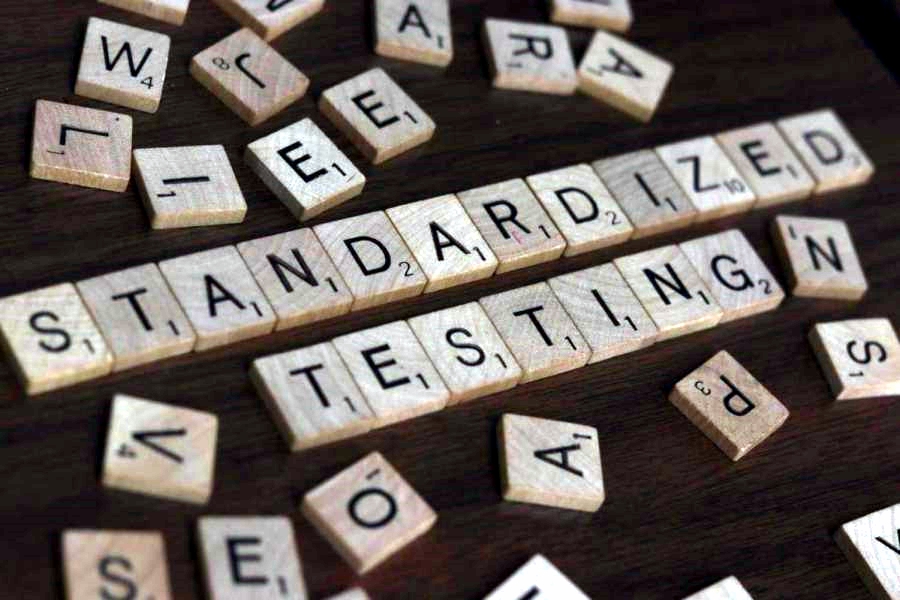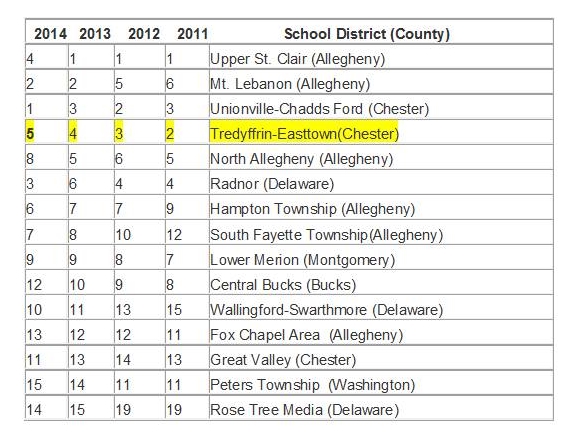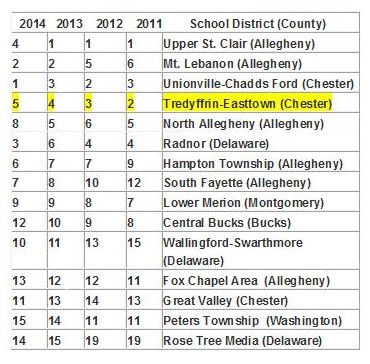 At the TESD meeting on June 8, the public learned that in addition to a 2.6% tax increase and administration salary increases, the school board’s approval of the budget included the suspension of ERB testing for the 2020-21 school year.
At the TESD meeting on June 8, the public learned that in addition to a 2.6% tax increase and administration salary increases, the school board’s approval of the budget included the suspension of ERB testing for the 2020-21 school year.
Although the elimination of the ERB testing was cited as a budget strategy, its associated $85,000 price tag did little to move the budget dial. In addition, some school board members argued that the removal of the long-valued ERB testing was not a budget strategy but rather something that was previously discussed.
Arguments on both sides regarding standardized assessment testing (like ERBs) existed long before coronavirus, school closings and distance learning was part of the discussion. Proponents say that standardized testing is a fair and objective measure of student achievement – that the testing ensures that teachers and schools are accountable to taxpayers, and that the most relevant constituents – the parents, actually approve of testing. Opponents say that the tests are neither fair nor objective, stresses out the students and detracts from real learning time.
Faced with the uncertainty of school reopening during the continuing coronavirus crisis, it would seem that assessment testing would be essential in providing an objective view of student performance. The test results provide parents, school board and administrators insight into individual, grade-level, school and district student performance – a thermometer to check the effectiveness of curriculum and gather information on any learning gaps.
Pennsylvania System of School Assessment (PSSA) is the annual standards-based assessment of what a student should know and be able to do at varying levels in reading, writing, science and math and identifies strengths and weakness of student achievement. In the spring, PA Department of Education cancelled PSSA testing for the 2019-20 school year because of COVID-19.
For the last sixteen years, the Pittsburgh Business Times has analyzed the PSSA test data given to third through eighth graders and the Keystone exams to measure high school proficiency. The Business Times looks at performance on three years of state standardized tests taken by students and compiles its annual school rankings, which were released last week.
Between 2011 and 2014, I tracked the top 15 school districts in Pennsylvania as ranked by PSSA results. As indicated in the chart below, TESD dropped in the PSSA rankings each year during those four years. The District was second in 2011, third in 2012, fourth in 2013, fifth in 2014 and in seventh for 2015. Unionville Chadds Ford topped the list in 2014.

Although the data is missing for 2015-2017, I can now add the 2018, 2019 and 2020 standardized test ranking results (shown below) from Pittsburgh Business Times.

In comparing the two charts, it is remarkable to see that Unionville-Chadds Ford School District consistently remains at the top of the rankings. It makes you wonder what UCFSD is doing so differently than TESD?
The standing of TESD was seventh in 2014 (again unclear about 2015-2017), moved up to fourth in 2018 and 2019 but has slipped back to seventh in the latest results. The 2020 results show that Radnor School District slipped from second to third, Great Valley School District moved up to eleventh and Lower Merion School District remained the same at tenth.
To be clear, a Pennsylvania school district that places in the top 15 or 20 out of 500 districts statewide based on the PSSA exams is an achievement for which students, parents, teachers and administrators can all be proud. However, the downward drop in TESD rankings on PSSA testing does makes you question if the ranking trend had anything to do with the District’s decision to eliminate ERB testing for 2020-21 school year. What’s that saying about “timing is everything”?
Could it be that the District knows more about the standardized testing report card than they are letting the parents and taxpayers know? Rather than viewing standardized testing as a helpful assessment tool and indicator of “need to improve” areas, perhaps the District would prefer to avoid the accountability that accompanies those test results.
It is apparent that many TESD parents differ with the District on assessment testing as a way to evaluate the teaching effectiveness and understand any learning gaps of their children, especially during COVID-19 and distance learning. BUILD T/E has stepped forward, is offering an ERB testing option, and provides the following update:
Since the TESD school board voted to eliminate ERB-CTP testing for the 2020-21 school year, BUILD has had over 50 families with more than 70 children register to receive the registration information the BUILD’s ERB-CTP test. The feedback has been overwhelmingly positive about this opportunity to ensure student learning is on track during this uncertain time. July testing dates will be released soon. If you are interested in signing up for testing or have more questions about ERB’s in TESD visit www.bit.ly/erbtesd
 Spring is PSSA time for public schools in Pennsylvania and the results for 2014 as reported in the
Spring is PSSA time for public schools in Pennsylvania and the results for 2014 as reported in the 